In early February of this year, many weeks after the first draft of my screenplay was accepted for production, I received the email from Hay Festival informing me that I have been selected as one of the best 39 under 40 authors from Africa South of the Sahara and Diaspora. I sat, stunned. For hours, I read the mail over and over again, went through the publication agreement, wondered if this was a dream. Because success stories like this was what happened to other people– those who had spent years building their craft, those who began writing stories right from when they were four, those who travelled abroad for residency or fellowship or MFA programs to develop their craft. Not someone who really just started writing barely three years ago.
For days I did not know how to react. But by March, I beamed with the bravado of a child trying on an oversized dress. I would sit before my laptop, type a few words, string up a few thoughts, but thoughts gave way to wonder, wonder gave way to the frightening comprehension, as my mind struggled to make sense of things. By April, when the list was published and I saw my name squashed somewhere in between great names, I finally laughed.
And so I looked forward to October. October was when the Africa39 authors would congregate and bond in Port Harcourt. But I became worried. What would they be like? October was a long road to discovery, and a long time to wallow in worry (because I always worry) and so I returned to my movie series and small battles, and when I checked the calendar again, Port Harcourt World Book Festival was already knocking on the door.
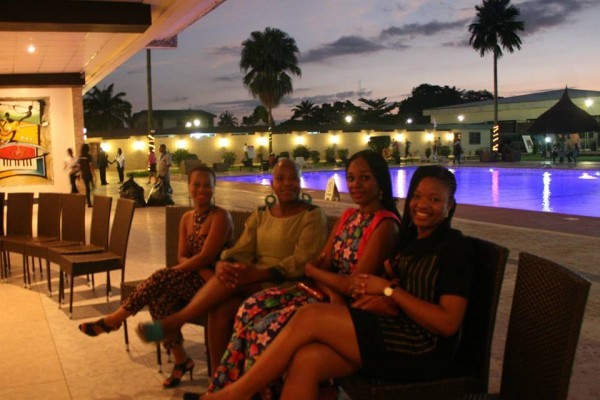
I set out for Port Harcourt in the early hours of Monday 20th October. Port Harcourt was just forty-five minutes away, but I sat in a go-slow (hold-up) along the ABA-PH expressway for three hours or more, counting the number of barefoot street hawkers who thrust their wares in my face, who raced along with my taxi when traffic gave, all of them singing sweet-talks, lecturing me on the importance of eating fresh fruit imported from America and South Africa – how I would stay young if I binged on these fruits. I bought some grapes and pulled away from the window.
Cars sweated in snaked lines, coughing and sputtering under the hot morning sun. Sun-beaten traffic wardens wielded their batons, spanking cars that broke all imaginable traffic rules. Phyno’s Alobam blared from my taxi’s stereo. I mopped my brow with stained kerchief and fanned my face with Toni Morrison’s The Bluest Eyes. If the driver noticed how tensed I was, he waved it away as he nodded to the raunchy rap. Tension sat in my stomach.
I got to the Hotel Presidential at around 11am. The neat, expansive building stank of pretentious airs as though to impress visitors on how neat and dandy he is. At the entrance, a security officer aimed at my head with a laser thermometer, checked it, nodded and politely demanded that I sanitize my hands. I pushed the button of the device that hung from the wall and it spat some gel in my hand.
At the second security point, the security officer, a young woman, gunned the side of my head with her thermometer and asked me to sanitize my hands. I stared at the plain white sanitizer machine which hung from a wall. There was no button to push this time. I turned to her.
“Just put your hand under it,” she said, smiled.
I did and the cold gel dripped on my open palm.
She waved me in. I sighed in relief as I rolled my bag toward the receptionist, but I stopped when I saw two familiar figures walking up to the cashier.
Clifton Gachagua saw me and beamed. Okwiri Oduor’s smile was tentative.
“I am Ukamaka Olisakwe,” I said.
And Okwiri’s smile stretched to the sides of her face. She threw her arms open and pulled me in a hug. Her bold kinky twists, a mix of red and black, hung around her neck like halo.
“It’s.. so.. good.. to.. see.. you,” Okwiri said. Her words carefully whispered as though she chooses her words first but was somehow afraid to set them free. I liked her immediately.
“So good to see you guys,” I said.
Clifton kept grinning.
I stared at Okwiri’s silver nose-rings. “So, when did you guys come in?”
Clifton explained that they arrived the night before and now they want to take a stroll around, to see Port Harcourt.
I bid them bye.
And checked in.
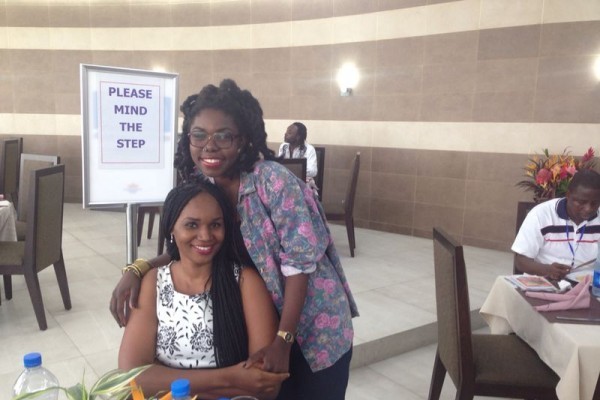
Later, by afternoon, I went down to the conference room where The Caine Prize Short Story Surgery was holding. The session had just stopped for a lunch break. Ellah Allfrey threw her arms open and held me for a long time. Maybe for seconds. Maybe minutes. I didn’t want to let go. Stanley Onjezani Kenani was already beaming, I held him, laughing. Abubakar Adam Ibrahim was busy chatting up a group of writers. I slapped his back, made a joke about him pretending to be busy, and hugged him.
Later, as we walked to the Rivers Restaurant, Stanley kept beaming, laughter in his eyes.
“I’m so glad to see you, Ukamaka.”
“I am glad. I am glad.”
Evening. We gathered again at the Rivers Restaurant. This time, the hall was bustling as other Africa39ers talked and laughed over food and drinks. I wanted to inspect their smiles — if they loved this place, if they were having a good time. I felt like the host who was afraid to let her guard down, who feared that her guests would look at the dark corners of the room and find cockroaches crawling out in day light. I became quite conscious, my laughter became strained. Until Chibundu Onuzo walked into the restaurant and it was Up NEPA!
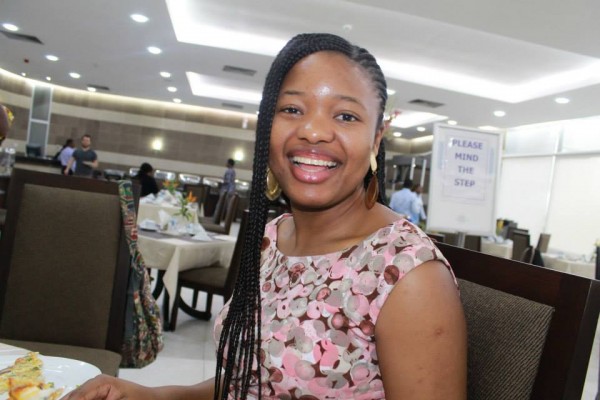
Tope Folarin walked in later and joined us. And then Abubakar. We all have met before. We shared a table. We all ordered jollof rice.
The waiter returned with our orders.
I inspected mine, scooped up rice, munched. Frowned.
“E no sweet?” Chibundu asked.
“Dem nor even put pepper.” I said.
Abubakar munched, shut his eyes, opened his eyes. “I think the pepper is ok.”
“I think it’s okay,” Tope said.
From the table across ours, Ndinda Kioko was sweating and gasping and fanning her mouth. “Oh God, too much pepper!” She wept. Okwiri handed her a glass of water.
I turned to Chibundu, whispered. “Abeg, no be dis rice wey I dey chop she dey chop so?”
“Na the same thing,” Chibundu said.
“Kenyans don’t eat pepper,” Abubakar explained.
“We don’t even eat pepper,” I said. “Indians eat a lot of pepper.”
“I think Thai foods are worse,” Abubakar said.
“Yes, Thai foods are worse,” Chibundu said.
“I haven’t tried Thai foods yet,” Tope said. “I haven’t been to Thai-lohnd before.”
I wanted to tell Tope how different he talked; how his “-and” became “ohnd”, how his “wota” became “woh-rrah”
Chibundu beat me to it. “Tope, you talk posh, you know. Very Oxford English.”
Tope laughed. “Nooo! I talk nohmohl”
“See how he pronounces ‘normal’?” I said.
“He is not even Tor-kpe. He is To-pay,” Abubakar said.
“Come one, guys, I talk noh-mal!” Tope was choking with laughter.
“Could you get me a lohrge borrtle of woh-rrah?” Chibundu mimicked.
I choked on a glass of water, laughing.
“You guys are mean! You guys are mean!” Tope laughed.
“I am To-pay Follering,” I mimicked, laughing.
“No, no. That’s not how I say it.”
“I love your accent,” I said.
“No, no. I don’t have an accent. You have accent.”
“I don’t have an accent,” I said.
“You have an assint,” Chibundu mimicked again.
We burst out in laughter.
Zukiswa turned to us. “Hey, Nigerians! You guys are having fun without us?” Zukiswa’s clicked her tongue and shook her head at us.
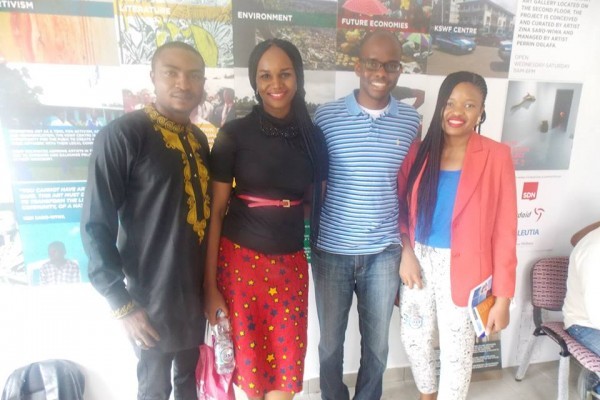
That night was also the welcome cocktail for the PHBF team, the Africa39 authors, the press and guests. But there was no cocktail. Instead we gathered by the pool side and snacked on small chops and Pepsi. We sat in clusters, discussing African literature. The PHBF team showed up later and announced that the event was actually just for the authors to meet and mingle with each other. But we were already steeped in conversations about the state of Africa Literature. Kunle Kasumu insisted that Nigerians actually read but that the reason why we aren’t being read was because our works aren’t accessible, and those that are accessible are very expensive, unlike the books by American and European authors which could be picked up from the streets for as low as three hundred naira. Eghosa Imasuen argued on the effects of Piracy on our works. Kunle asked how many copies a best-selling African author could sell in Nigeria and Eghosa said five thousand copies.
Soon conversations dribbled with laughter. A slow tune crooned from the speakers amounted around the pool. And when we checked our wrist-watches, it was quarter to go-to-bed.
By morning, after breakfast of laughter and food, Abubakar Chibundu and I matched to the Atlantic Hall for the opening ceremony.
Bishop Matthew Kukah opened the event with a rousing keynote speech, so rousing was it that all the Africa39 authors present jerked up their seats, clapping. After the Bishop left, Kunle Kasumu moderated the session, “Possibility of Nigeria at 100.” Each discussant spent considerable time appreciating Bishop Kukah’s speech– first by Reverend Christie Bature-Ogbeifun before she launched into her points, next Ndidi Nwuneli before she launched into a short speech about LEAP Africa and the effects of corruption on our collective image, and again by Nekabari Tigidam Perez. And when the microphone was handed over to Japhet Omojuwa, I was ready to tear out my hair and eat them. Japhet Omojuwa broke the orchestrated openings with a brilliant venture into the effects of the social media and the youth. When the microphone was handed over to Olusegun Adeniyi, he froze, as though he had no idea what he was supposed to do or say. I expected some sort of extemporaneousness from a man who once served as a Special Adviser to the late President Yar’adua. I got none. Kunle Kasumu came to his rescue, prodding him with questions on what government decisions were like at the Federal Executive Council, to which Olusegun Adeniyi heartily and almost in relief, responded with a, “all they talk about are contracts.” And then he launched into a story of how the FEC members and ministers lobby to get contracts.
The day ended in a blur. We were yet to have an event yet. There was a bit of boredom as we felt left out from the big point of the festival: political talks.
But there were small redemptions in between. Africa39 authors would sit out with Ellah Allfrey by the pool or in the Rivers Restaurant and the discussions ventured on essential literary discussions. We were actively engaged. Ellah listened and asked appropriate questions. We wanted to match her intelligence, her energy, her strength. She would ask questions, glue you to your seat with her curios stare, listen attentively as you articulated your points, nod as you peaked, and effortlessly she directed the next question to the next author with a conjunctional sentences like, “I think I agree with Zukiswa on X. What did you feel about Y? Do you think it can be improved?”
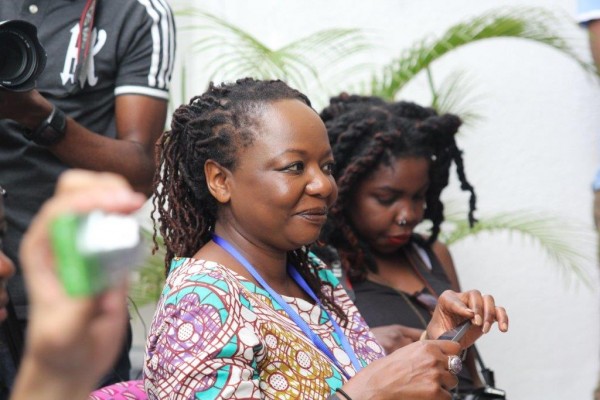
The festival was more outdoor for me. By the pool. The restaurant. Occasionally, the lobby. Everywhere the Africa39ers met.
Our activities began by Wednesday at the University of Port Harcourt. But by then we had become a family. It was as though we’d known each other from a life before. By Thursday, we were hooting for each other, whooping and yelling and clapping as each batch of Africa39 authors were called on stage for more meet-the-author sessions.
Mostly, I shared same table with Tope, Chibundu and Abubakar. We lingered over meals because we choked on laughter while our food ran cold. I would say something and Chibundu would turn it on its head, and Tope would rub it in, and then he would innocently deny that he never rubbed anything in. Abubakar laughed so much he wept, and then Chibundu laughed at Abubakar who was weeping, and I laughed at Chibundu who was laughing at Abubakar who was weeping. Tope laughed at us all, “you guys are crazy!”
By the fourth night, a female waiter rudely warned us to keep our voices down.
When she left, Chibundu said, “Did you see her name?”
“PLEASURE,” Abubakar said, nodding.
I started laughing. And then we are all laughing.
A male waiter returned again with warning. We looked around. We were the only Africa39ers remaining.
“Seriously, this people will go for thanksgiving when this festival ends,” Chibundu said when the waiter had left.
We started laughing again, grabbing our stomachs. The Waiters’ eyes returned to us again and we quickly got up and left.
On the fifth day, after a meet-the-author session at the Atlantic hall, we walked back to the hotel, dragging our feet, scanning the large posters of book covers placed at strategic points.
Then we saw it, Peregrination, and we stopped walking.
“Peregrination,” Chibundu rolled the word with her tongue, her brows furrowed.
“Which kain word is that?” Abubakar asked.
“It sounds funny,” I said.
“Maybe we can look it up later,” Tope said.
Chibundu turned away, “Abeg let’s peregrinate back to the restaurant. I’m hungry.”
“We better peregrinate fast-fast, because I’m hungry too,” I said.
“It shouldn’t take us three minutes to peregrinate to that restaurant, but Ukamaka always stops to greet people”
“No, I don’t. Chibundu always stops to greet everyone.”
“Na lie. You almost know everyone here,” Chibundu said.
“But they haven’t been stopping me to say, ‘hello Spider lady!”
Tope began to laugh. “True, that man called you ‘Spider Lady’.”
“The Spider lady,” Abubakar sang.
“Come on, Spider Lady, don’t feel so bad, it means he loves your book!” Tope said.
Chibundu was reeling with laughter.
Zukiswa wanted three things else her trip to Naija would be incomplete: Egusi soup, Kolanut and palm wine, because she read about them in Purple Hibiscus. She ate Egusi soup. She bought kolanut and bitter kola on our way back from the University of Port Harcourt. I don’t remember if she finally drank palmwine.
October 24th. The fifth day. It was my birthday. The Africa39ers each gave me a hug. Zukiswa Wanner threw a birthday party for me. She sang the “black happy birthday song”, a pastiche of the usual “happy birthday”, some South-African undertones and beats and leg taps. Tope Folarin sang a poshy “happy birthday” song. Stanley Gazemba sang the Kenyan version. Richard Ali sang in French. Recaredo Boturu sang in Spanish. Chibundu danced. Abubakar gave me a book. And then the books kept coming, second from Zukiswa. and next from Recaredo Boturu. Stanley Kenani gave me a box of chocolate. And I got to see the fun side of Eghosa Imaseun and Oris Aigbokhaevbolo. I sat before them, taking calm breathes, trying not to cry. Later, Chinedu Amah’s elder brother broke the kolanut Zukiswa presented for the event. The room fell silent as the man prayed in Igbo, blessing Zukiswa, her family and us. Our Isee! thundered at the end of each prayer.
Final day and I woke, dazed. I stared at the ceiling.
Stay for forty-eight hours, please.
But day rushed over to afternoon. The sun beat our backs as the Peregrinators returned to the restaurant after the last session. Our smiles were strained. Silence jeered at us. Night came with a fight. Everything else happened in flashes. The peregrinators held each other for beats, moments. We tried to smile. Chibundu DJ’d, taught me a few dance-steps. Olamide. Flavour. Wizkid. Phyno. But this woman was desperately sad.
That night, I stared at the ceiling until sleep came, and when I opened my eyes seconds later, light was already peeking through the window blinds.
I glared at the ceiling. I glared at my phone. I glared at the door. I was drowning in yesterdays. I got up from bed and began to pack. Clothes. Books. Books. Books.
Memories.
Where do I stuff those? In my purse? In my bag? In my phone?
There is this thing about emptiness. It sits in your stomach and clenches each time you breathe. So I hugged my phone against my stomach. I looked out of the window. It was a Sunday and I could see straight from Port Harcourt to Aba.
I jumped when my jerked to life with a buzz.
You have a text message.
I stared at the message from a Peregrinator. Something warm crept up my chest.
And I smiled.
***********************
Click HERE to see more photos.


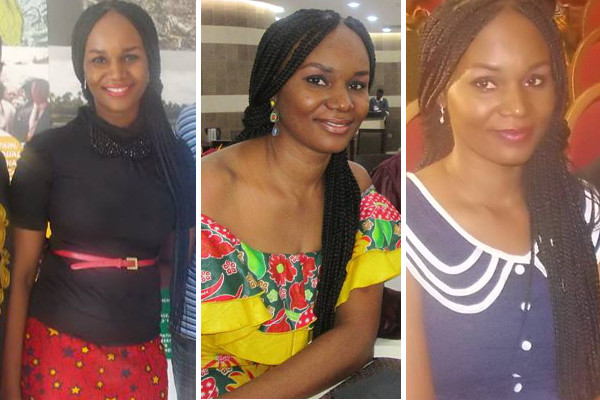
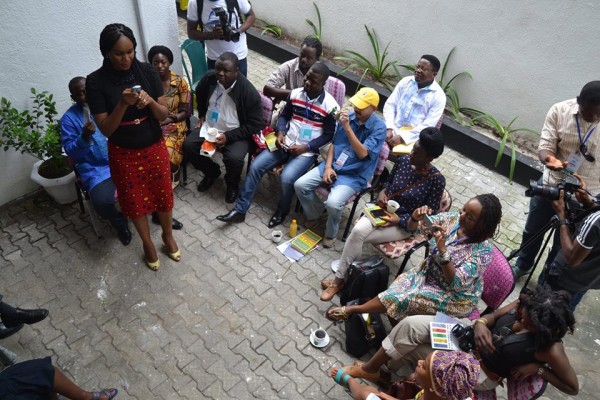
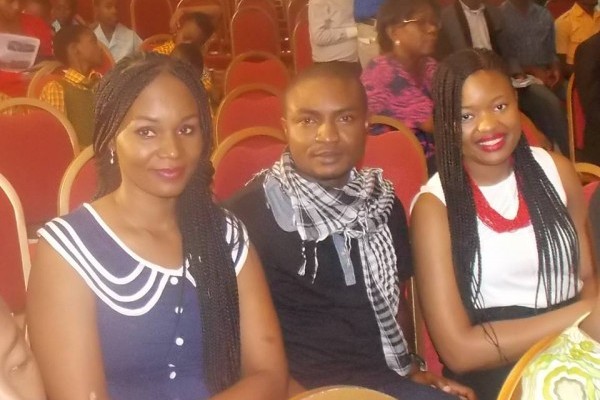


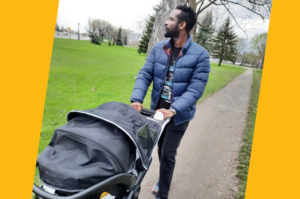




Azuka November 08, 2014 08:59
Beautifully detailed and written with the skill of an incredibly gifted writer.